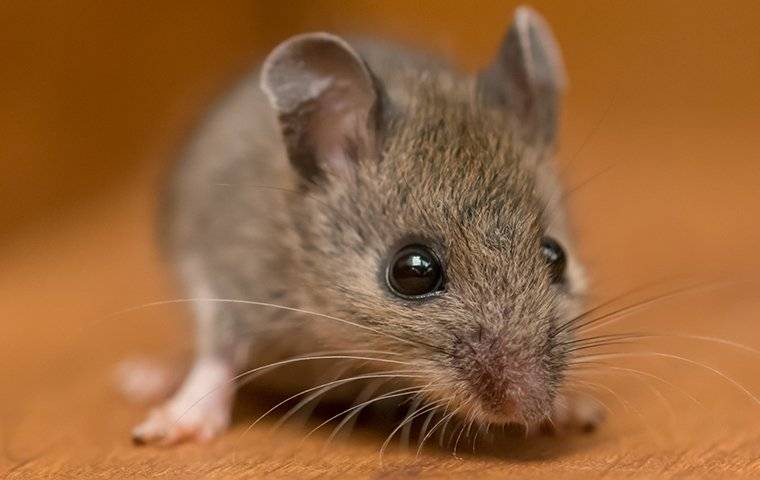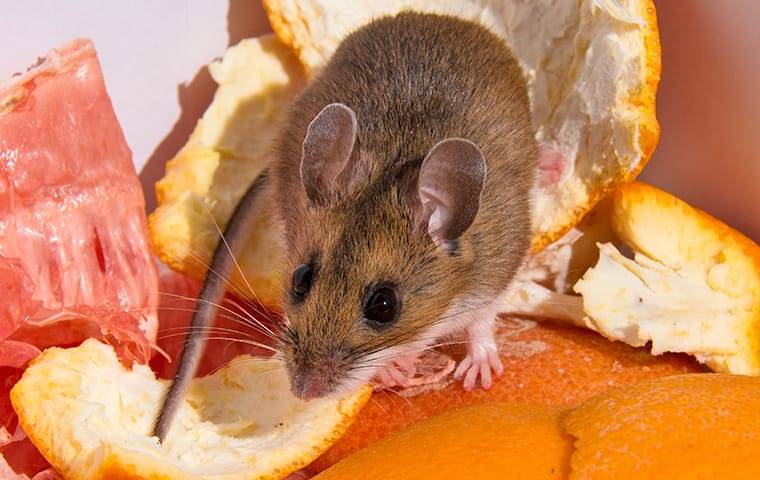Mice are among the most common pests Monmouth County residents have to deal with. This is because certain mice species really like living in our homes with us. If you want to have any hope of keeping mice out, you’re going to need to know a few things about how and why they get in. Here are a few common mouse control questions we get at Alliance Pest Services. These should give you valuable insight into what you’re up against, but more importantly, give you sound ideas for how to keep them out.


"Can mice climb walls?"
Mice have tiny claws that can grip bumps, dents, holes and other imperfections. This allows mice to scale a wall like it is running across a floor. How well a mouse can climb depends on the surface.
"Can mice jump?"
The jumping ability of a mouse is quite impressive. Most adult mice can leap 13 inches straight up. This is important to keep in mind if you’re trying to capture mice in a bucket. It is also important to know if you’re trying to rodent proof the exterior of your Monmouth County home.
"How big does a hole have to be to allow a mouse in?"
A mouse is about 2 ½ to 3 ¾ inches long. If you know this, you might think that a hole has to be this size in order for a mouse to enter your home, but most mice can fit through a hole the size of a dime. If it can fit its head through, it can get the rest of its malleable body through. So you need to be looking for the tiniest holes when you work to seal mice out of your home.
Another factor to consider is that a mouse can make a small hole larger. If you have any holes in the wood of your home, no matter how small, you should seal them. Mice are attracted to holes and are inclined to see what they can find inside them. Sealing a hole, even with a material mice can easily chew through, will still help with keeping mice out. If mice continue to attack the spot, metal flashing or hardware cloth will keep them out.
"Can mice see in the dark?"
You might think so to watch them with an infrared camera as they move around in dark spaces. But mice can’t see in the dark. In fact, they can’t see well at all. They rely on their whiskers to help them find their way. This is one of the reasons they run along walls, rather than exploring every inch of an open space. It is helpful to know this as clutter can attract mice and help them do more exploring, both inside and outside of your home.
"What attracts mice to a house?"
There are three things that matter to mice: food, hiding places, and harborage. You might immediately notice that water isn’t in the list. Mice can usually derive all the water they need from the foods they eat.
There are many things that mice consider to be food. They love bird seed that falls from feeders. They eat acorns and nuts. They eat fruits and berries. There could be many food options in your yard. But, as you know, they’ll also feed on human foods—and they’re not picky. An open trash is like ringing the dinner bell. A mouse can smell decaying food from quite a distance.
Mice don’t like to be exposed. When they come into your yard, they prefer to find tall grass, plant overgrowth, lawn clutter, and other places to hide. They are particularly interested in organic clutter, such as dead branches stacked in a pile, scrap wood left over from a construction project, wood pallets with objects stored on top, campwood, etc.
Mice can create a home in the wild, but it is far easier to create a home inside yours. They can grab pieces of insulation, wallpaper, fabric from stored clothing, and other materials to make their nests in the voids of your home. They can also get into stored couches, chairs, and mattresses and make their home in the soft innards.
"How do I keep mice out of my house?"
Remove food sources.
Protect potential food sources, such as trash.
Using fencing material to protect voids under structures.
Seal your exterior.
Remove clutter.
Move leaves, wood, grass clippings, and other organic material away from your home.
Keep your lawn trimmed.
Remove bird feeders or move them to at least 20 feet from your exterior.
"How do I get rid of mice?"
If you’re currently dealing with mice inside your Monmouth County home, it is best to contact Alliance Pest Services. Mice are notoriously difficult to control once they’ve gotten inside. Reach out to us today for immediate assistance with your rodent control problem. We can help.
Latest Blogs
Stay informed about pests and pest related issues in your area!
Dangerous Spiders Of Columbia, MD
If three different spiders are placed in front of you and you are told to pick up the harmless one to win a million dollars, would you feel confident enough to do it?
The Easiest Way To Get Bats Off Your Monmouth County Property
Do you see an increased amount of bats around your home lately? Learn the best way to get bats off of your property.
Are The Fleas In Monmouth County Causing You Headaches?
Prevent and treat fleas with help from Alliance Pest Services in Monmouth County.
Request Your Free Quote
"*" indicates required fields


